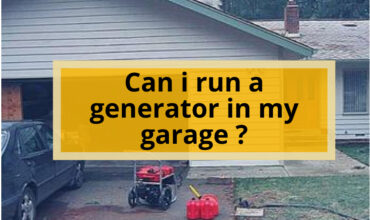Power outages can strike unexpectedly and leave us in the dark, literally and figuratively. The loss of electricity can disrupt daily routines, cause inconvenience, and even pose a danger to people who depend on medical equipment. In such situations, generators can be a lifesaver, providing backup power to keep the lights on and essential appliances running.
However, the reliability of generators depends on their maintenance, and neglecting it can lead to disastrous consequences. Therefore, it is crucial to ensure that generators are serviced regularly and kept in good working condition.
In this article, we will delve into the world of generator maintenance, exploring its importance, the key components that require attention, and the recommended maintenance schedule for different types of generators. We will provide detailed guidelines for minor and major service and highlight the consequences of neglecting maintenance.
By understanding the basics of generator maintenance and following the recommended practices, you can ensure that your generator is always ready to provide backup power when you need it the most. So, let’s dive in and learn how to keep our generators in top shape.

Generator Maintenance Basics
Generator upkeep is critical for ensuring that generators are ready for use when needed. Scheduled maintenance services, including minor and major services based on time/mileage or usage hours, are essential to keep generators in optimal condition. It is also necessary to periodically start and run the generator to activate and condition the engine.
Visual inspections of fuel levels and battery corrosion are also important aspects of generator maintenance. Routine inspections of fuel levels can detect fuel leaks and major contaminations, while inspecting the battery can determine if there is any corrosion that may prevent electrical circuit completion.
Additionally, minor services should include checking fuel and oil levels, inspecting air cleaner elements, hoses, belts, batteries, engine control panel, jacket water heater, radiator, generator brushes, exciter, regulator, and transfer switches.
Proper maintenance ensures that generators are always ready for use, and it is an essential responsibility for those who rely on them for backup power.
Minor and Major Service
The routine maintenance schedule for generators includes both minor and major services based on set time or usage intervals.
Minor services are typically performed every 500 hours of operation or every 6 months, while major services involve more extensive maintenance such as changing oils, oil filters, and fuel filters.
These services are crucial to ensuring that the generator is ready to perform when needed and can prevent costly breakdowns or repairs in the future.
To perform these services, a qualified technician is required who has been trained to work on the specific OEM generator engine.
They check fuel and oil levels, inspect air cleaner elements, hoses, belts, batteries, engine control panel, jacket water heater, radiator, generator brushes, exciter, regulator, and transfer switches.
In addition, minor services include recording battery cells specific gravities and calibrating and cleaning related transfer switches.
Keeping up with these service intervals is critical for backup power generators, and environmental conditions may accelerate the maintenance schedule.
Thus, it is essential to hire an experienced technician to ensure that the generator is maintained properly.
also read : Choosing The Right Extension Cord For Your Generator
Importance of Maintenance
Maintaining a regular maintenance schedule for your generator is crucial to ensure that it is always in a state of readiness when needed. Preventative measures are necessary to avoid unexpected downtime and ensure the longevity of your equipment. Environmental factors, such as location and weather conditions, can also impact the maintenance schedule of your generator. Dusty or sandy environments can clog air filters more rapidly, while extreme temperatures can affect battery performance.
To illustrate the importance of maintenance, the table below summarizes the consequences of neglecting generator service:
| Neglected Maintenance | Consequences |
|---|---|
| Failure to periodically start and run the generator | Engine components may become seized, resulting in costly repairs |
| Failure to visually check fuel levels | Fuel leaks and major contaminations can occur, leading to unsafe conditions |
| Failure to inspect the battery for corrosion | Electrical circuit completion may be prevented, causing the generator to fail when needed |
| Failure to perform minor and major services on schedule | Downtime, decreased reliability, and shortened equipment lifespan |
By keeping up with routine maintenance and addressing any issues promptly, you can ensure that your generator is always ready to provide backup power when it is needed most.
Frequently Asked Questions
What are some common causes of generator failure?
Generator failure can result from poor fuel quality, leading to engine damage and malfunction. Overloading can also cause failure, causing overheating and damage to internal components. Regular maintenance can prevent these issues.
How long can a generator typically last with proper maintenance?
A well-maintained generator can last up to 20-30 years, with regular minor services every 500 hours or 6 months, and major services including oil and filter changes. Maintenance frequency is critical to extending the generator lifespan.
Can a generator be serviced by someone without specialized training?
DIY generator service is possible with basic knowledge of generator maintenance tips, but specialized training is recommended for complex procedures. Improper servicing can lead to safety hazards, equipment damage, and voided warranties.
What are some signs that a generator may need immediate maintenance?
Unusual noises, leaks, and power fluctuations are signs of immediate generator maintenance. Regular servicing, including checking fuel and oil levels, inspecting air filters, hoses, and belts, is crucial for ensuring reliable backup power.
Is it necessary to service a generator if it is not used frequently?
Generator maintenance tips emphasize the importance of routine service to ensure readiness when needed. Even if not frequently used, generators require periodic minor and major services to check fuel and oil levels, inspect air filters, and replace filters and oils.






